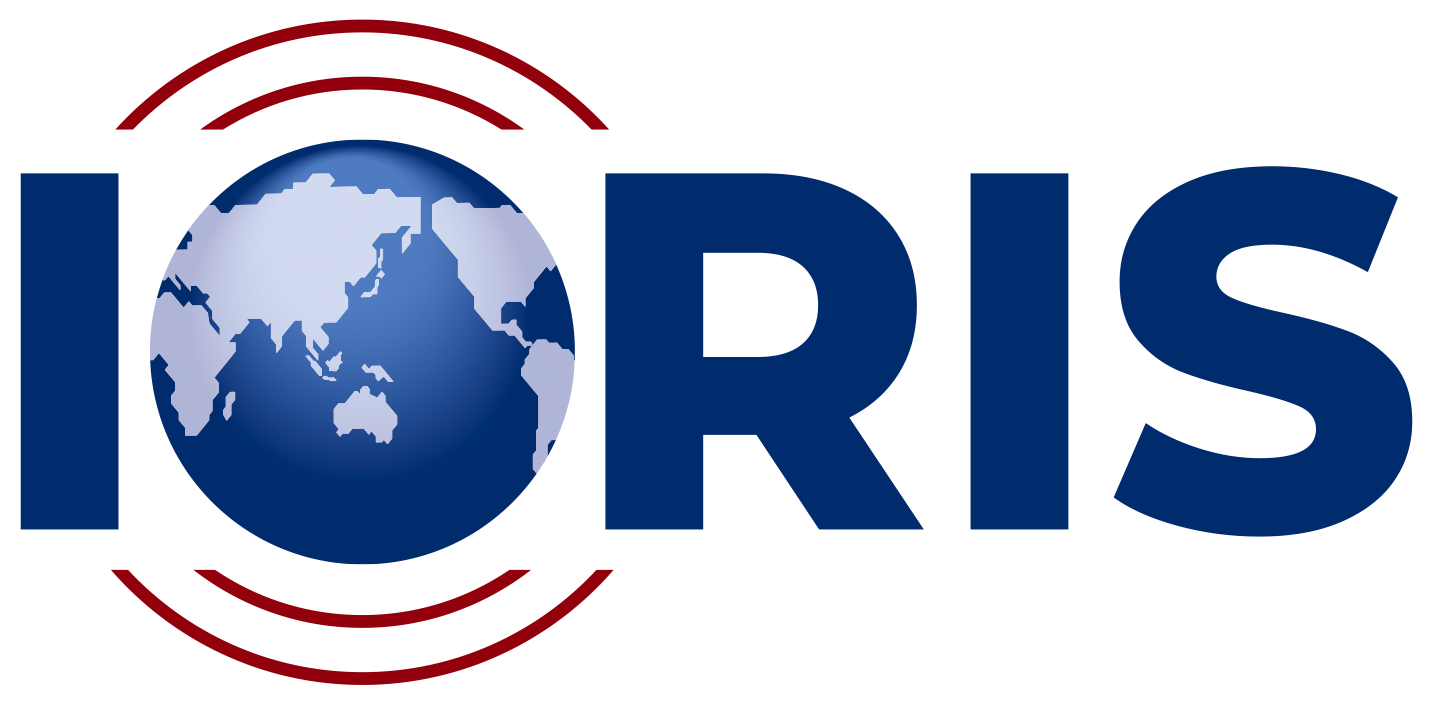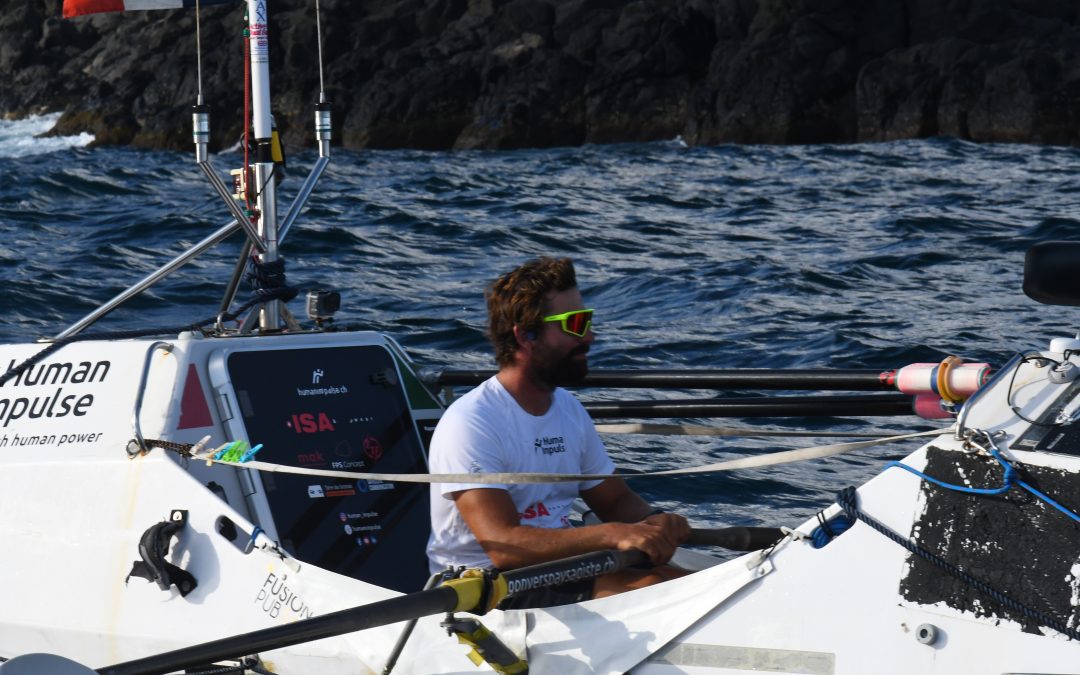Driven by a mission to share the power of a deep, instinctive drive—the Human Impulse—Louis Margot seeks to inspire younger generations to take bold steps and engage in meaningful endeavours. With this purpose in mind, he has embarked on one of the most demanding challenges imaginable: a solo circumnavigation of the globe using only human muscle power. His only means of transport? Cycling and rowing.
The current record for such a feat stands at 5 years and 11 days. Louis Margot is determined to complete it in less than 3 years. He departed from his hometown of Morges, Switzerland, on 3 September 2023. From there, he cycled to Portimão, Portugal, then rowed across the Atlantic to Santa Marta, Colombia. His journey continued on land to Lima, Peru, and from there, he crossed the Pacific to the Marquesas Islands, where he arrived on the 8th of March 2025.
During his crossing of the Pacific, Louis’s route was monitored by Peruvian maritime authorities and the French Maritime Rescue co-ordination centre (MRCC)via the IORIS platform while within their national waters. This cooperation highlights the growing role of technology and international collaboration in supporting and safeguarding solo expeditions.
In your opinion, how has modern technology changed the way solo expeditions like yours are planned and carried out compared to the past?
“Planning and embarking on a solo journey require significant mental resilience. Being alone at sea for days on end—sometimes without seeing a single person—can be mentally challenging. To prepare myself, I dedicated a lot of time to yoga and meditation, which helped me build focus and inner calm.
At the same time, modern technology plays a crucial role in making such expeditions safer and more manageable, especially when navigating alone across vast and often unpredictable waters. Onboard, I have access to a satellite phone, which provides fast and reliable communication, even in the most remote parts of the ocean. It allows me to stay in touch with my support team and loved ones, which brings a sense of comfort and security that’s hard to overstate.
Through various apps and digital tools, I can also access real-time weather forecasts, sea conditions, and current patterns—information that is vital for planning each leg of the journey and reacting to unexpected changes. Navigational tools like AIS help me maintain awareness of nearby vessels and potential hazards, making it easier to make informed, safe decisions on the move.
During one of my regular updates with my team, I learned that my journey from Peru to the Marquesas Islands was being tracked via the IORIS platform. I wasn’t familiar with the platform before, but I was genuinely pleased to hear that the Peruvian Coast Guard and the French Maritime Coordination Centre were following my progress and sharing my position through the system. Knowing that the platform facilitated communication and coordination among different centres made me feel supported and protected, even in the middle of the ocean, and I will be happy if my next leg, until Indonesia would be shared on IORIS too! “
What message would you give to maritime authorities about the importance of strengthening international cooperation, especially from the perspective of someone navigating alone in the middle of the ocean?
“As someone who navigates the vast ocean alone, I can say with absolute certainty that international cooperation is not just important—it’s essential. Out here, borders don’t exist the way they do on land. The sea is shared by all of us, and so are its challenges. Issues like illegal, unreported, and unregulated (IUU) fishing, marine pollution, or safety at sea don’t stop at territorial waters. No country can tackle these problems in isolation.
When you’re alone in the middle of the ocean, you realize how interconnected we all are. You see things—ships behaving suspiciously, oil slicks, ghost nets—that might never be reported or acted upon simply because there’s no clear, unified way to share that information. A simple, standardized app for reporting suspicious activity or environmental damage could make a world of difference. As sailors, we are the eyes and ears out here, hence we can help enforce maritime laws and protect our ocean more effectively.
Stronger international cooperation would mean shared data, better communication, quicker response times, and a safer, more sustainable ocean for everyone. “
Louis Margot is currently resting and preparing for the final, crucial stretch of his sea journey, which will take him to Indonesia—before he begins the cycling leg back to Europe. This last part of his maritime adventure is particularly challenging due to complex ocean currents, and to Louis’ knowledge, only one other person has ever attempted this route.
As we wish him the best of luck on this daring endeavour, we also take this opportunity to encourage agencies using IORIS in the region to support and follow his journey in the next months. His expedition is not only a test of human endurance but also a powerful reminder of the importance of international cooperation and shared responsibility on the world’s oceans.
About Louis Margot
Originally from Morges, Switzerland, 33-year-old Louis Margot is a distinguished athlete and committed adventurer. With a background in international rowing and extensive long-distance cycling, he chose to follow a powerful inner calling and take on the most ambitious challenge of his life: Human Impulse. Guided by the values of resilience, determination, and optimism, Louis aims to prove that even the boldest dreams—those that might seem impossible—can become reality. Through his journey, he hopes to encourage young people to reflect on their own aspirations and to pursue what truly matters to them.
To know more about the adventure: humanimpulse.ch
Photo: © Olivier Gréduvan


Recent Comments